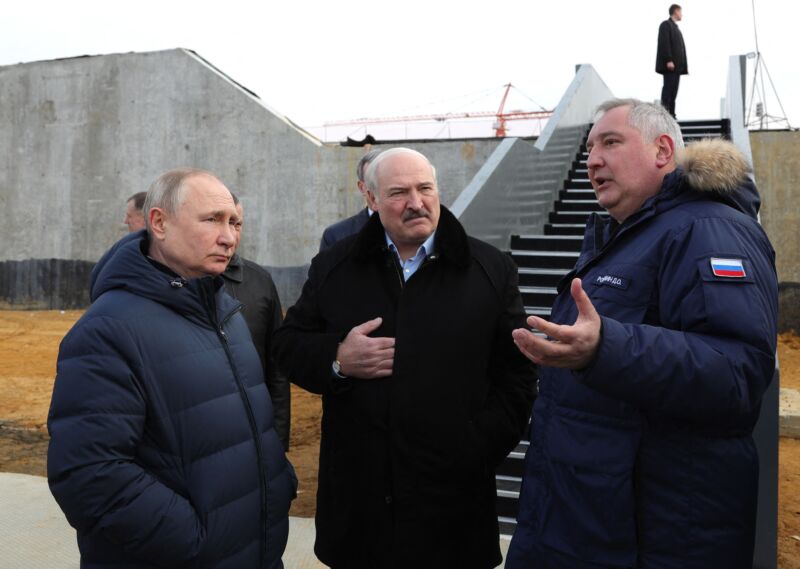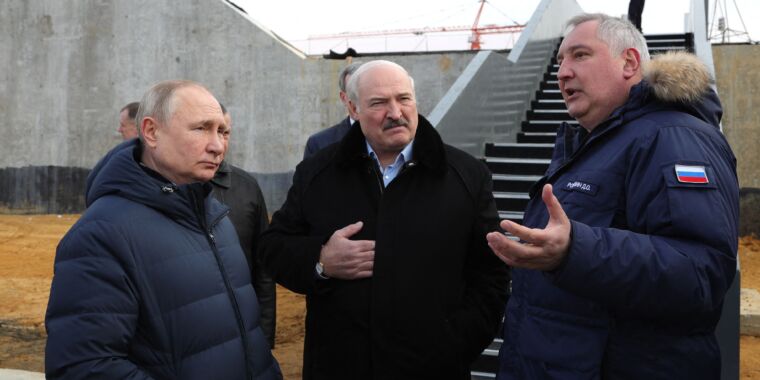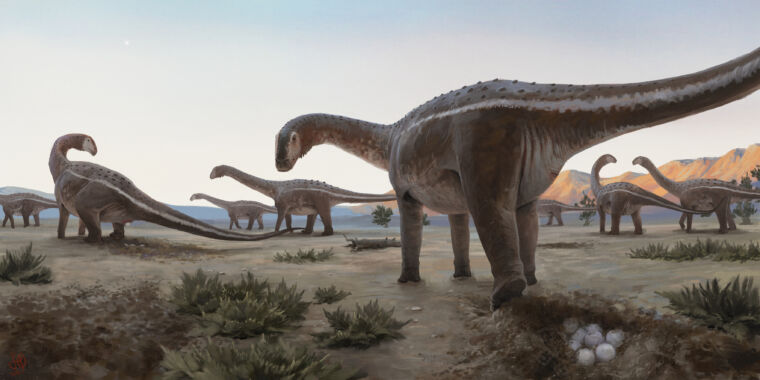
Mikhail Klimentyev/Sputnik/AFP via Getty Images
To mark the 61st anniversary of Yuri Gagarin’s historic first spaceflight, Russian President Vladimir Putin visited his country’s newest spaceport on Tuesday. Putin was accompanied by the chief of Russia’s space program, Dmitry Rogozin, and Belarusian President Alexander Grigoryevich Lukashenko, who has managed to hold on to his office since 1994.
Russians are understandably proud of their nation’s historic spaceflight glory, and Putin wanted to cloak himself in the glow of Gagarin’s achievement. Putin also sought to explain to Russians how he will continue Gagarin’s legacy by talking up Russia’s civil spaceflight efforts. “We need to successfully stand up to the challenges of space exploration,” he said. To that end, Putin said Russia is working on a “next-generation transport ship,” as well as a nuclear-powered space tug. And, according to Russian media reports, Putin added, “We will resume the lunar program.”
The next-generation ship presumably refers to the “Orel,” or Eagle, spacecraft that would be capable of launching cosmonauts into low Earth orbit as well as to the Moon. The problem with this is that Orel, under various guises and names, has been in development for nearly two decades and is likely years away from flying—if it ever does. And the nuclear-powered space tug is a concept that is years or more likely decades-to-never away from launching.
That leaves the lunar program Putin mentioned. He is referring to a series of three robotic missions planned for launch to the Moon, Luna 25, Luna 26, and Luna 27. These missions, too, have been in the planning stages for a long, long time. Luna 25 was originally scheduled to launch on a Soyuz rocket a decade ago, and its current launch date is now August 2022.
There is reason to be skeptical about all of the above happening, because even before the war in Ukraine, Putin significantly slashed Roscosmos’ budget. Now, more resources than ever will likely be devoted to the war effort.
Leaving for Luna
Leaving low Earth orbit with Luna 25 would be a big deal for Russia. The nation has not launched even a partially successful interplanetary mission since 1988, when Phobos 2 reached orbit around Mars, and some operations were completed before communications were lost. Still, Luna 25 is a modest mission, as it will only be capable of landing about 30 kg of scientific payload on the surface of the Moon. By contrast, the Chang’e probes that China has landed on the Moon during the last decade were far heavier and more sophisticated.
And now the Luna missions will no longer have European partners. Hours after Putin spoke at Vostochny Cosmodrome in far-eastern Russia, the European Space Agency Council held a meeting during which its members agreed to discontinue cooperative activities with Russia on the three Luna missions.
“The Russian aggression against Ukraine and the resulting sanctions put in place represent a fundamental change of circumstances and make it impossible for ESA to implement the planned lunar cooperation,” the space agency said in a statement.
Hello, America
Instead of partnering with Russia, ESA said it would now work with NASA and its commercial partners. For example, an ambitious lunar drilling mission, PROSPECT, will be moved off of the Luna 27 mission. This lander was supposed to set down at the lunar south pole to investigate the accessibility of water ice and other minerals. Now, the PROSPECT mission will fly on a US-launched commercial lander, procured by NASA as part of its Commercial Lunar Payload Services program.
An independent Russian space journalist, Anatoly Zak, said he believes the move to a US commercial mission means the PROSPECT drill probably will have a better chance of reaching the lunar surface. He added that even the small Luna 25 mission’s schedule will likely slip again.
In his remarks Tuesday, Putin did not address the International Space Station, which is the last major remaining tie between Russia and the United States, Europe, Canada, and Japan in space. For now this partnership is expected to continue, despite the atrocities of the war in Ukraine, as the station is a critical part of both Russia’s and the West’s foothold in low Earth orbit.








